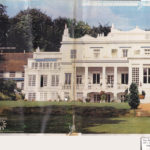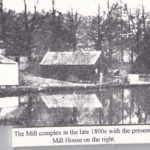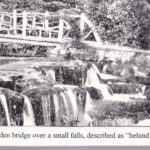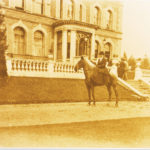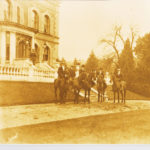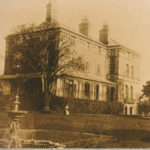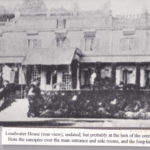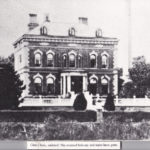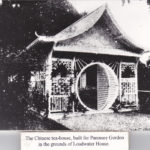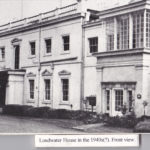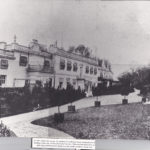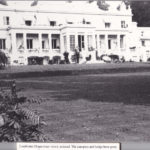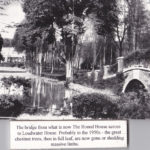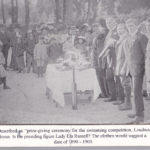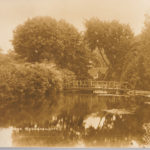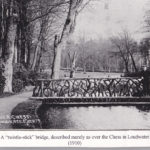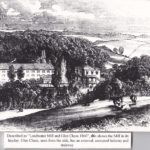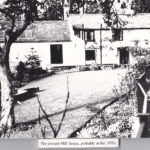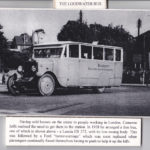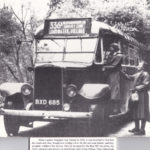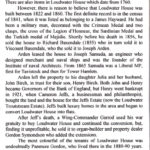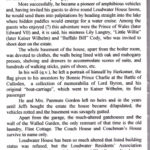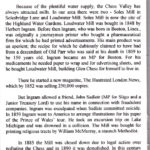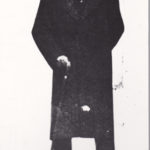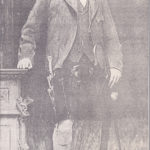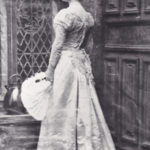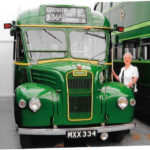We welcome contributions to this website about the history of Loudwater. If you’ve lived here for a while, or even if you haven’t, please send us photos, stories and other information about Loudwater that we can share with your neighbours.
Contributions should be sent to the chairman at chairman@lraonline.org.uk.
The History of Loudwater
Lecture on 10 May 2007
The name of Loudwater derives most likely from the sound of the River Chess which, had waterfalls along the stretch which ran through the area. Another version, sometimes seen in documents, i.e. Louthwater was most probably a misspelling of the name.
The Mills in Loudwater
There probably was a cloth mill already in existence on the Croxley side of the River Chess in the mid 14th Century. Micklefield Hall owned most of the land round the mill at the time. John Cutter was making cloth in the mill in 1676, the cloth being prepared by beating it in the river water.
Later the role of the mill changed to papermaking when John Shipton bought it. He was also the owner of the Solesbridge Mill further up the river Chess. The King brothers then bought the mill and run it until 1802, a son Thomas (b 1797) ran it from 1818. The mill was at this point enlarged by moving it to both sides of the river. Until that it had only existed on the Croxley side.
In the mid 18th C it was valued at £16.000, when Thomas Weedon owned it. A son called Richard owned a third of the mill at this time and when Thomas died leaving the mill to his wife Susanne in 1851, the mother and son ran it together. The mill was originally operated by waterpower only until steam came to more general use.
Herbert Ingram, a publisher of the London Illustrated News, est.1842, bought the mill in 1848 when more steam engines were installed to it. By that time the mill employed 106 men and 37 women thus being an important employer for the local population.
Herbert Ingram wanted to live at least part of the year in Loudwater and thus the foundation stone of Glen Chess was laid in 1851, but when Herbert and his son were on a business trip in the USA, the pleasure boat they were in was sank in the night by another boat and thus the mill changed hands again when it was sold William McMurray the same year. McMurray donated money for the first Methodist Chapel in Rickmansworth but it unfortunately burned down a couple of years later.
A court case was brought against the mill in 1867 for polluting the river waters. This was very bad news for the c200 people who at the time were working at the mill. The case was dropped but, in 1885 an inquiry stated that the pollution was getting too much and the mill had to close in 1887 at the death of McMurray. He left £80 000 in his will. The mill was then sold to William Mc Farlane (The Sporting Life) who had been managing the Croxley side of the mill.
The mill became derelict but the stables were still used i.e. for accommodating 40 Italian Prisoners of War during World War II.
Loudwater Farm
This area of the Chess valley has been inhabited since Roman times. Local school children go on expeditions to search for signs of Roman vineyards on the slopes of the valley.
Early documents about the farm existed already in the 1400s and in the 1550’s John Wingfield ran it as a mixed farm growing e.g. hops for making local beer. Richard Eve owned the farm later, he died in 1693. When his son Richard died in 1708, the farm was bought by the William brothers, after which the farm was run by several tenant farmers starting in 1779.
It was sold in 1805 (120 acres of arable land) and several tenant farmers carried on the work. In the 1920s the land was sold for housing development and the Royal Masonic School bought 60 acres of the farmland.
Loudwater House
A Mr Milton bought 60 acres of the land and built a large mansion called “Beguines” by the river, where he entertained guests lavishly in the early 19th C.
When he lost his money, Lord Misbourne bought it in the 1820’s and, then Mrs (or Ms) Elizabeth Morgan who changed the name to Loudwater House. She died on the 17th of Sept.1827.
The house was left unoccupied until 1835 when Mr Hayward bought it. He left it before he died in 1856.
According to the register in 1868 it belonged to Mr Joseph Arden of Rickmansworth Park who left it in trust to his daughter Julia and her husband John William Birch who was the Governor of the Bank of England. The estate then was treated mainly as an investment property and leased to various families although it belonged to the Birch family as a single entity until 1921 as for instance Viscount Malden who was the Master of the Berkeley Hunt in Chorleywood and whose lease ran out in 1867.
The following year the lease was sold to the Samuda family until it expired in 1888. Henry Gordon, later Panmure-Gordon, a stockbroker in the City of London, then took over the lease and entertained guests in the mansion, which he had furnished with artefacts from the Far East.
1894 the house caught fire and the upper floor with bedrooms was destroyed but Rickmansworth Fire Brigade managed to save most of the other parts of the building. Later Mr Panmure-Gordon entertained the firemen at the Victoria Hotel for their efforts in extinguishing the fire so quickly. He kept a large collection of valuable carriages in the purpose built carriage house.
He died in 1902 aged 52 and the lease was sold to Mr John Kerr in 1903. He kept a large stable of horses which all had the first part of their name as Loudwater and which won several prizes over the years. On the expiry of the lease in 1913 John Kerr left the area and it was left unoccupied during the World War I.
In the 1920s Loudwater House and the land around it was sold and scheduled for a housing estate in which we all enjoy living today.
Ritva Hale, May 2007

